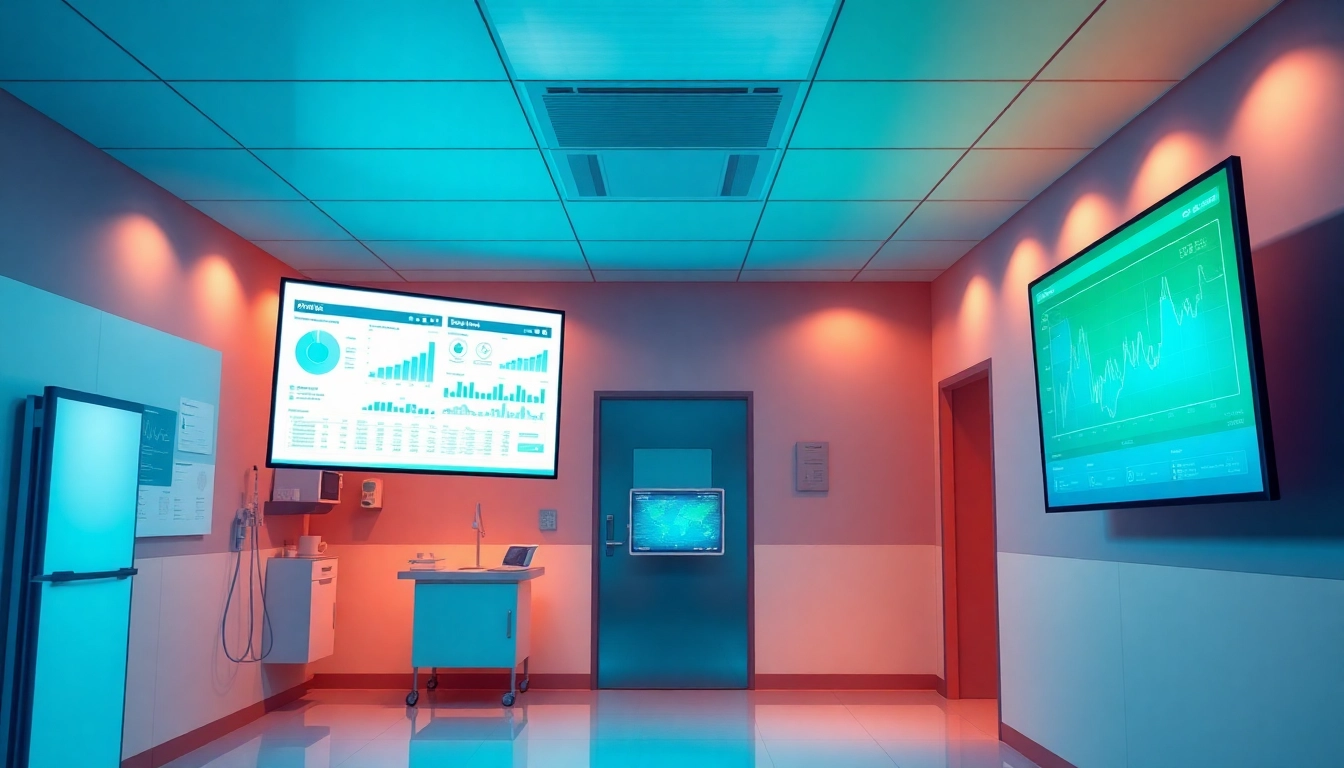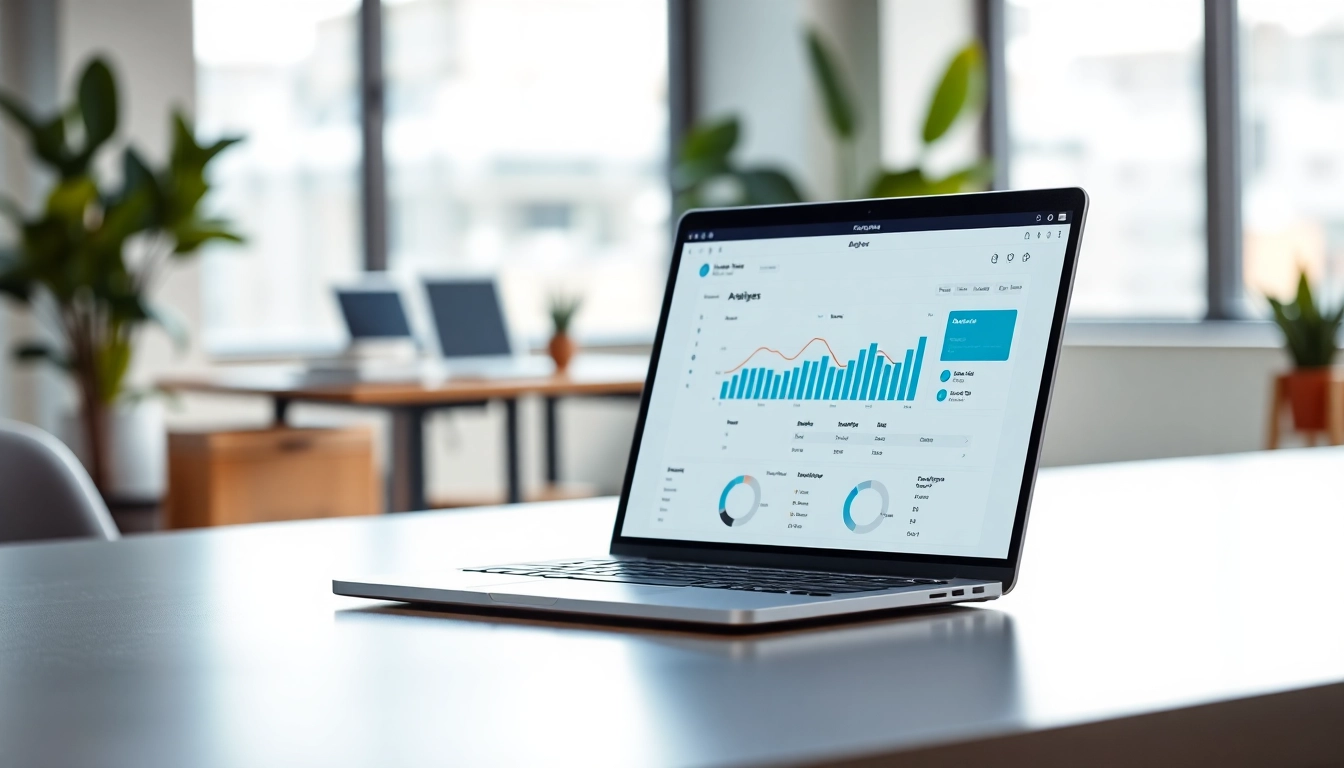
Understanding Informatics in Healthcare
In the evolving landscape of healthcare, the integration of informatics has become paramount. Informatics, often referred to as the science of data management, relates specifically to how information is utilized to improve healthcare processes and outcomes. As professionals seek insights into how the symbiosis of information technology and healthcare can enhance patient care, resources like https://www.informaticsview.com offer valuable information on these developments.
What is Informatics?
Informatics is a multidisciplinary field that encompasses various domains, including information science, computer science, and healthcare. At its core, informatics focuses on the application of information technology (IT) to improve the organization, analysis, and dissemination of health-related information. The objective is to leverage this information to enhance patient care quality and the efficiency of healthcare systems. According to the American Medical Informatics Association (AMIA), informatics includes practices that improve the efficiency of healthcare delivery and the accuracy of diagnoses through systematic data management.
The Role of Technology in Patient Care
Technology plays a vital role in bridging the gap between healthcare providers and patients. Electronic health records (EHR), telehealth solutions, and telemedicine are just a few examples of how technology is transforming patient care. The implementation of EHRs has enabled healthcare providers to maintain accurate and accessible patient records, facilitating better communication and continuity of care between practitioners. Moreover, telemedicine innovations allow for remote consultations, making healthcare more accessible to patients, particularly in rural or underserved areas.
Key Concepts Behind Healthcare Informatics
In healthcare informatics, a few key concepts stand out: interoperability, data analytics, user-centered design, and privacy/security protocol. These elements work together to create a robust framework for managing health information:
- Interoperability: The ability of different IT systems and software applications to communicate and exchange data seamlessly.
- Data Analytics: Utilizing data analysis techniques to extract meaningful insights from healthcare data, leading to improved clinical outcomes.
- User-Centered Design: Designing IT systems with the end-user in mind, ensuring they are intuitive and effective for healthcare professionals.
- Privacy and Security: Safeguarding patient health information (PHI) by adhering to regulations like HIPAA to ensure data security and patient trust.
The Impact of Informatics on Healthcare Delivery
Improving Patient Outcomes with Data
Data-driven decision-making enhances healthcare delivery by leading to more accurate diagnoses and tailored treatment plans. By analyzing patient data trends, healthcare providers can identify risk factors, monitor disease outbreaks, and evaluate treatment effectiveness. For instance, predictive analytics can forecast hospital readmission rates, allowing for preventive measures that significantly improve patient outcomes.
Efficiency in Healthcare Operations
The streamlining of healthcare operations through informatics not only reduces costs but also enhances the quality of care. Automation of administrative tasks, such as appointment scheduling and billing, frees healthcare providers to focus more on patient interaction. Hospitals using integrated informatics systems have reported substantial reductions in operational inefficiencies. A notable example is the use of real-time data dashboards, which assist healthcare managers in tracking key performance indicators and making informed decisions rapidly.
Case Studies Illustrating Success
Numerous healthcare institutions have successfully integrated informatics into their operations. One exemplary case is the Geisinger Health System, which adopted a comprehensive electronic health record system. As a result, the organization experienced improved patient care quality, increased patient satisfaction scores, and enhanced staff efficiency. Another success story is the implementation of a mobile health tool by the Veterans Affairs (VA) that enabled veterans to manage their prescriptions and health appointments digitally, leading to increased adherence to medications and better healthcare engagement among patients.
Tools and Technologies in Healthcare Informatics
Electronic Health Records (EHR)
Electronic Health Records (EHR) form the cornerstone of healthcare informatics. EHRs digitally store patients’ medical histories, treatments, and test results. Transitioning from paper records to EHRs yields numerous benefits, including immediate access to patient data for healthcare providers, improved legibility of information, and increased potential for collaborations among specialists who share patient information. Major EHR systems, such as Epic and Cerner, offer functionalities that accommodate various medical specialties, thus forming a comprehensive approach to patient care.
Clinical Decision Support Systems (CDSS)
Clinical Decision Support Systems (CDSS) utilize health data to offer healthcare professionals evidence-based clinical guidance at the point of care. CDSS can alert clinicians to potential medication errors, recommend diagnostics tests based on patient symptoms, and suggest actionable interventions based on clinical guidelines. Research has shown that CDSS positively impacts patient safety by reducing adverse events and improving clinical outcomes through timely and informed decisions.
Telemedicine Solutions
Telemedicine is a transformative aspect of healthcare informatics, particularly as it facilitates remote healthcare delivery. Through video consultations, remote monitoring tools, and mobile health applications, telemedicine brings healthcare services directly to the patient, providing convenience and accessibility. During the COVID-19 pandemic, its importance became even more pronounced as many healthcare services shifted from in-person visits to virtual care, demonstrating not only the capability of telemedicine but also its vital role in maintaining continuity of care during crises.
Training and Skills Required in Clinical Informatics
Educational Paths in Health Informatics
For professionals seeking to pursue a career in healthcare informatics, various educational paths are available. Many universities now offer specialized bachelor’s, master’s, and doctoral programs in health informatics, blending healthcare expertise with technical skills. These programs often cover essential subjects such as health data management, information systems, and healthcare policy, ensuring graduates possess a comprehensive understanding of both clinical and technical domains.
Essential Skills for Informatics Professionals
To excel in the field of clinical informatics, professionals need a diverse skill set. Key skills include:
- Technical Proficiency: An understanding of IT systems, database management, and software applications is crucial for informatics professionals.
- Analytical Skills: The ability to analyze large datasets to derive actionable insights is essential.
- Communication Skills: Informatics professionals must effectively communicate complex information to both technical and non-technical stakeholders.
- Problem-Solving Skills: Identifying inefficiencies and formulating strategic solutions are vital for improving healthcare processes.
Certification and Continuous Learning
Many informatics professionals seek certification to validate their expertise. Organizations like the American Health Information Management Association (AHIMA) and the Healthcare Information and Management Systems Society (HIMSS) offer certifications that demonstrate proficiency in health informatics. Continuous education is also vital in this rapidly evolving field, and professionals are encouraged to pursue additional training, attend workshops, and engage in online courses to stay updated with the latest trends and technologies.
Future Trends in Healthcare Informatics
AI and Big Data in Healthcare
The integration of artificial intelligence (AI) and big data analytics into healthcare informatics will shape the future of patient care significantly. AI technologies can process massive datasets to uncover patterns, allowing for predictive analytics that can anticipate patient needs. Machine learning algorithms improve clinical decision-making, facilitate personalized medicine, and enhance operational efficiencies by optimizing resource allocation.
Interoperability Challenges and Solutions
Despite the potential of informatics, challenges in interoperability remain a significant hurdle. The ability of disparate healthcare systems to share and interpret each other’s data is often limited by non-standardized formats and protocols. Solutions include the implementation of standardized health data formats like HL7 and FHIR, which promote seamless data exchange, thus enhancing collaboration across varied platforms within the healthcare ecosystem.
Policy Changes Shaping the Future of Informatics
As technology continues to evolve, so do the regulations governing healthcare informatics. Policies related to data sharing, patient privacy, and cybersecurity are increasingly crucial. The U.S. government and various international bodies strive to establish guidelines that balance innovation and patient protection, ensuring that informatics can thrive while safeguarding sensitive health information. Understanding these policy shifts is essential for informatics professionals to navigate the regulatory landscape effectively.








